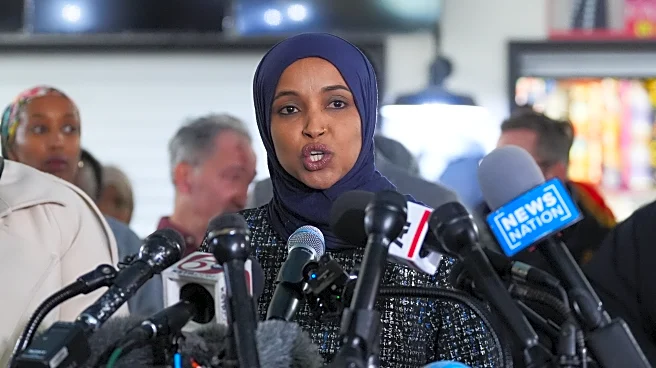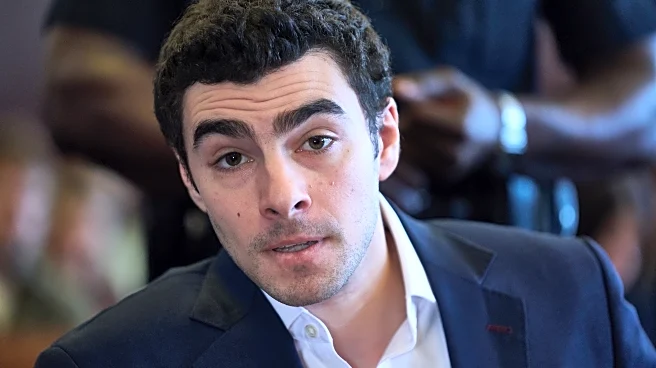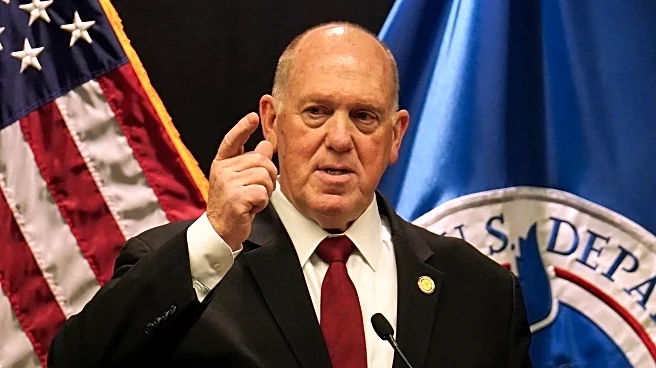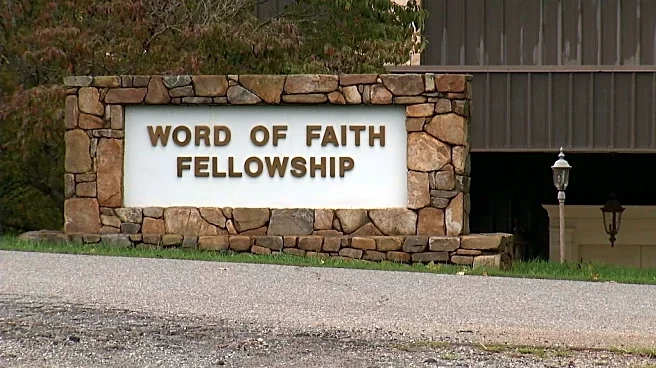What's Happening?
The U.S. Immigration and Customs Enforcement (ICE) has clarified details regarding a program that offers cash assistance to unaccompanied minors who choose to self-deport. This clarification comes amid allegations that the Trump administration is attempting to broker deals with these children. An ICE spokeswoman denied the existence of a so-called 'Freaky Friday' program, a term allegedly created by anti-ICE activists to spread misinformation. The spokeswoman emphasized that the program is voluntary and financial assistance is provided only after the children return to their native countries. This clarification follows legal challenges that halted the deportation of several Guatemalan teens, who were reportedly targeted for deportation by the Trump administration. A federal judge found no evidence that the children's families sought their return, contradicting claims by the administration that the Guatemalan government requested their return due to trafficking concerns.
Why It's Important?
This development is significant as it highlights ongoing tensions and legal battles surrounding U.S. immigration policies, particularly those affecting unaccompanied minors. The program's clarification may impact how immigration attorneys advise their clients and could influence public perception of the administration's immigration strategies. The controversy underscores the complexities of immigration law and the challenges faced by minors in navigating these systems. The outcome of the pending lawsuit could set a precedent for how similar cases are handled in the future, potentially affecting thousands of unaccompanied minors in the U.S.
What's Next?
The pending lawsuit involving the Guatemalan teens will continue to unfold, with a temporary restraining order currently preventing their deportation. Legal experts and immigration advocates will likely monitor the case closely, as its outcome could influence future immigration policies and practices. Additionally, ICE and the Department of Homeland Security may face increased scrutiny and pressure to ensure transparency and adherence to legal processes in their handling of unaccompanied minors.









